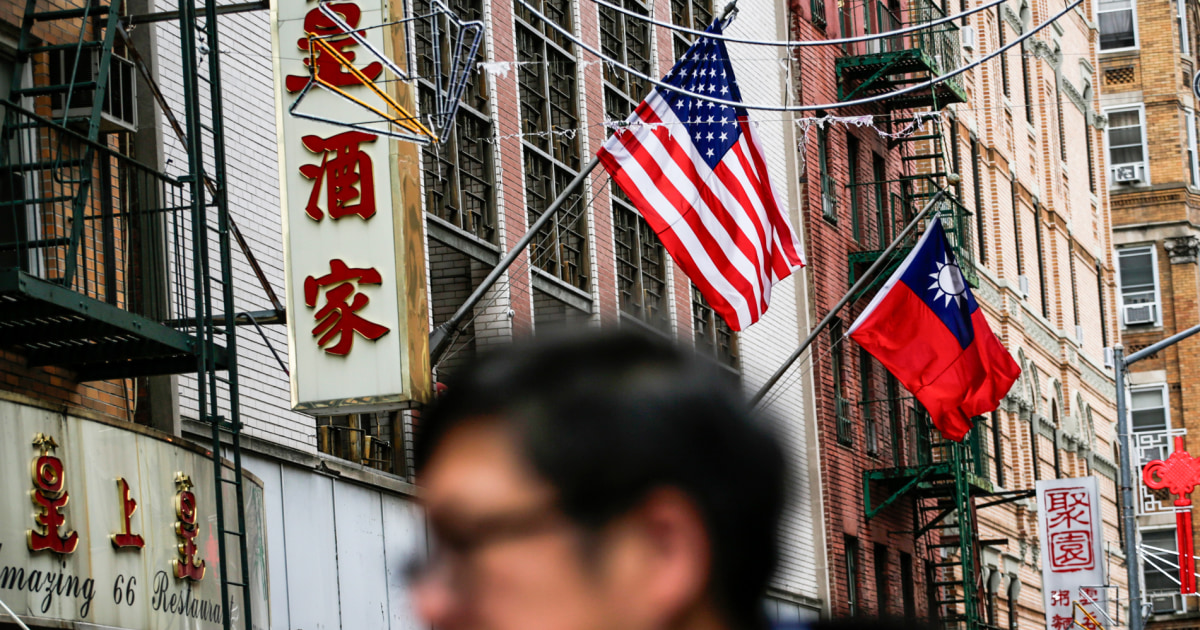Most Chinese Americans feel that the current relationship between the U.S. and China is a negative one, and almost two-thirds think that such contentious relations can affect how other Americans treat them, a new study shows.
With the election heating up and the topic of U.S.-China relations factoring heavily in debates and candidates’ platforms, researchers say the results are particularly concerning.
For the study, released jointly by Chinese American civic engagement nonprofit Committee of 100 and NORC at the University of Chicago, researchers sampled 504 Chinese Americans in March. The surveys were conducted over the phone, in English and both Mandarin and Cantonese dialects, as well as online, and touched on a number of topics, from cultural identity and acceptance to political engagement and U.S.-China relations.
Researchers found that 54% of Chinese Americans felt that the current relationship between the U.S. and China has had a “somewhat negative” impact on how those of Chinese descent are treated. Another 10% said the current environment had a “very negative” effect on the group.
Only about 3% felt that current relations between the two countries had a positive impact on the community.
“Rhetoric and language is impacting relationships with how strangers treat them, acquaintances even treat them, co-workers and colleagues,” said Nathan Chan, a co-author of the study and an assistant professor of political science at Loyola Marymount University. “This is really infiltrating into the lives of everyday Chinese Americans.”
Additionally, more than 80% of Chinese Americans are “at least a little” concerned about the rhetoric used by 2024 presidential candidates when discussing U.S.-China relations, fearful that language used by political leaders could lead to discrimination from their followers, the study showed.
Steven Cheung, communications director for former President Donald Trump’s campaign, did not address the study findings, but said in an email that the “media should focus on the real dangers posed by the Chinese Communist Party, which is using spy balloons to surveil our country, buying up American farmland, crippling our manufacturing industry, stealing American intellectual property, and undercutting our workers.”
The campaign of Vice President Kamala Harris, the Democratic presidential nominee, did not respond to a request for comment. But the Biden-Harris administration published a memorandum in 2021 condemning the use of racist rhetoric toward Asian Americans.
“The Federal Government must recognize that it has played a role in furthering these xenophobic sentiments through the actions of political leaders, including references to the COVID-19 pandemic by the geographic location of its origin,” the memorandum said. “Such statements have stoked unfounded fears and perpetuated stigma about Asian Americans and Pacific Islanders and have contributed to increasing rates of bullying, harassment, and hate crimes against AAPI persons.”
Chan pointed to policies like the controversial Trump-era surveillance program the China Initiative and the former president’s language around economic espionage.
The China Initiative, which expired in 2022, was intended to curb Chinese economic and technological espionage. However, it was accused of prompting racial profiling toward Asian scholars in the U.S. Earlier this month, the House passed a bill to revive the program.
In a video released last year, Trump praised his own administration’s handling of espionage from China, adding that the efforts would be “expanded in a very, very big way” if he returns to the White House.
“Instead of hunting down Republicans, a reformed FBI and Justice Department will be hunting down Chinese spies,” Trump, the Republican presidential nominee, said in the video.
Chan said that the “rhetoric is not doing any good for a large swath of Chinese Americans that are then being scapegoated or held under a suspicious lens.”
The way in which China has been covered in the news also matters, the study showed. About two-thirds of respondents said they felt that the rhetoric used by U.S. media when reporting on the issue negatively affects how strangers treat them.
Jo-Ann Yoo, who heads New York City-based Asian American nonprofit Asian American Federation, said that too often, language used by media has been imprecise, leading to “sweeping generalizations” about the Chinese community. “The Chinese,” for example, has too often replaced references to “the Chinese government,” she said.
Land restrictions, like in Florida, that limit Chinese citizens from buying property, could be affecting the Chinese community as well. The study showed that two-thirds of those who have heard of the legislative efforts said they think it has a negative impact on how they’re treated.
Yoo said the study’s results reflect discussions she’s heard in the local community. Citing discussions around the land bans and the looming TikTok ban, which was signed into law earlier this year in an effort to combat Chinese influence, Yoo said those in the heavily immigrant community are unsure of their safety amid contentious relations.
“People think because there might be a language barrier, that our community is stupid. We’re not stupid. We are still living in times of anti-Asian violence, and we are watching all of this anti- China sentiment unfold,” Yoo said. “This is Asian hate 2.0.”
But Chinese Americans are still optimistic, the study showed. Overwhelming majorities of the group still feel that the countries can cooperate on student exchange programs, climate change, trade and the spread of infectious diseases. But it’s up to leaders, Chan said.
“There are ways in which politicians can identify issues of tension between governments, carefully using rhetoric without targeting and casting a wide net of suspicion,” Chan said. “Regardless of the intention of these tough-on-China policies, there are unintended consequences on the treatment of Chinese Americans.”

Leave a Reply